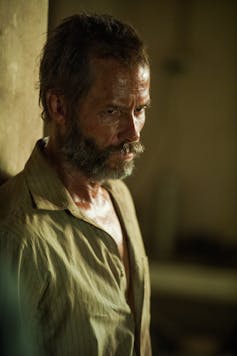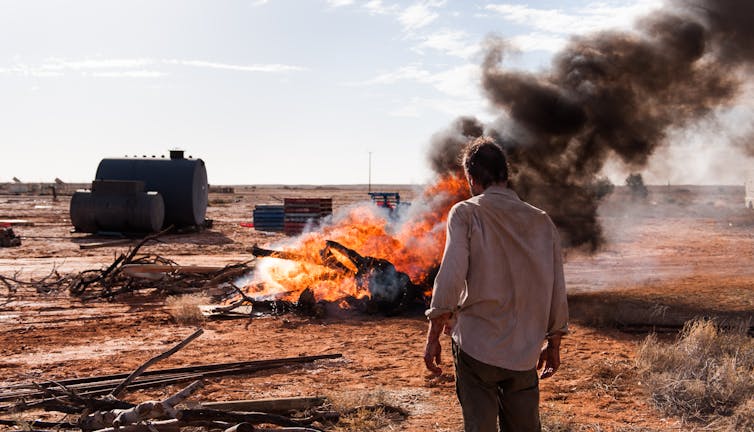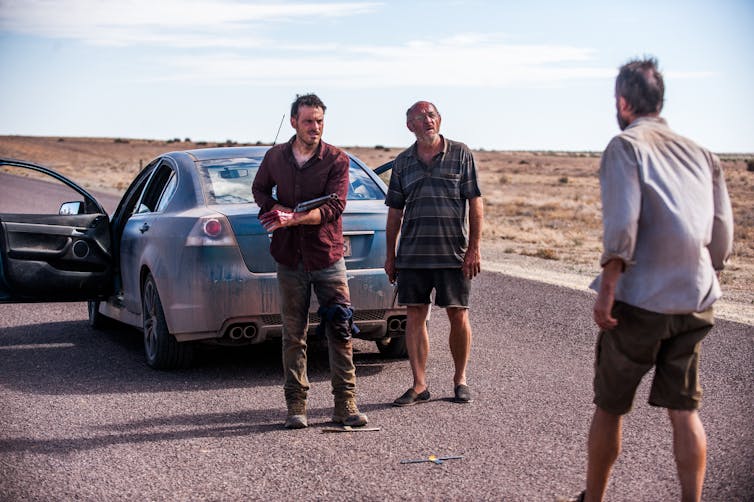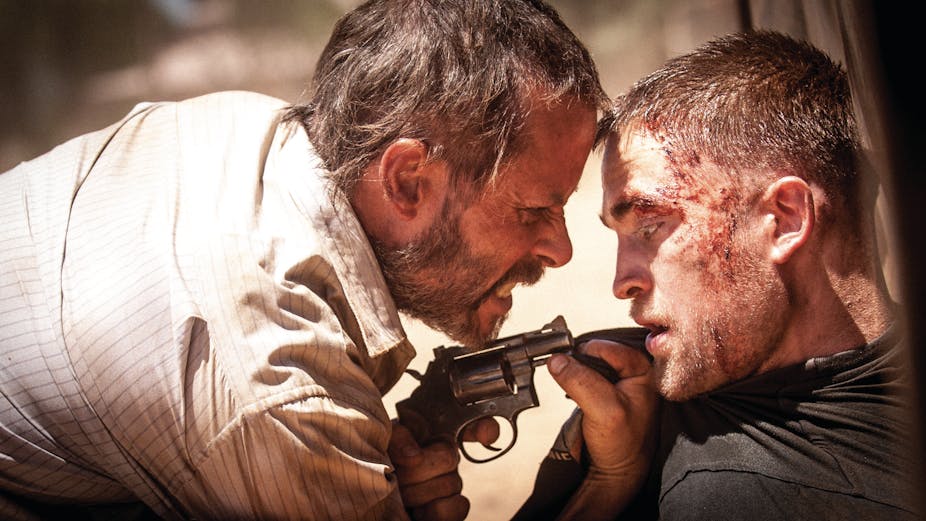The Sydney Film Festival Offical Competition this year has featured a range of male (and a few female) protagonists who are either without domicile, or whose domicile is severely threatened. I have already reported on Ivan Locke’s predicament in my review of Locke.
Controversial French filmmaker and poet Michel Houellebecq arguably finds a domicile with his kidnappers “outside” of the European Union when he plays himself in The Kidnapping of Michel Houellebecq (2014) directed by Guillaume Nicloux. Kumiko, the central character of Kumiko, The Treasure Hunter (2014) is on a deranged quest to find the lost treasure of an old VHS tape of the Coen brothers’ Fargo. Black Coal, Thin Ice (2014) features a dissolute detective investigating a series of gruesome murders, and Two Days, One Night (2014) features a woman faced with forced redundancy if she cannot convince her fellow workers to forgo a bonus.

In all these films subjectivity is placeless. Protagonists do not have geographic coordinates, no neighbourhoods, or familiar locations.
By far the most extreme example of a placeless subject is Eric, the central protagonist of Australian director David Michod’s second film The Rover, played with unremitting fury by Guy Pearce. Eric is not only without domicile but he has gone feral.
A feral animal is a wild animal that is descended from domesticated individuals. A feral animal is without family, or perhaps even without species. Its wild-ness is “foreign”. It is not in equilibrium with its environment and lives outside of a natural ecology, a force of extinction. Eric avoids contact, will bite with unexpectedly ferocity (and Eric’s first act of violence is shocking). He is sullen and exhausted, he has mangy hair and a twisted gait suggestive of a few too many bitter conflicts.
A feral animal has a past that is illegible in its current environment. We learn that Eric was a farmer, then one day he murdered his wife and her lover, but we learn further that the source of his ontological emptiness stems not from this act but rather from the fact that no-one came after him, no-one tracked him down and brought him to heel – “How could it be that no one came after me?”

If this absence of law is a result of the collapse, or an isolated incident is not certain, and the relation between Eric’s fury and the collapse, to my mind, is opaque. Is his life a casualty of the collapse? Is his life a figure of the collapse? Post-apocalyptic films play an intriguing game with meaning and meaninglessness.
I don’t think The Rover adequately relates the internal state of the protagonist to the exterior world. If anything Eric is radically isolated. He represents nothing (but not nothingness). His movement is only given form by a random incident. Eric parks his car by the side of the road and enters a petrol station. Meanwhile three men, one bleeding profusely from a gunshot wound, argue about a fourth man left behind for dead, the brother of the wounded man.
The argument leads to a spectacular accident on the road outside the petrol station. The three men abandon the vehicle, a four wheel drive utility, and steal the nearest car, Eric’s Commodore. Eric then pursues the men in their utility. In a tense confrontation that plays with territorial control, Eric is struck down and awakes beside the utility at another location.

Some time later Eric stops for petrol and discovers a badly wounded man beside the utility. “Where did you get my brother’s car?” the man asks. Eric bundles the young man, the fourth left for dead by the other three into the utility.
This complex set-up, with the exchange of vehicles and therefore of places and identities is undeveloped because there is too much insistence on violent negation, on meaninglessness, despite the attempts to offer clues to a possible future social order. The rest of the film is like going on a road trip with your taciturn father or uncle, it’s not much fun, and somewhat boring.
For a generic reference, The Rover is George Miller’s Mad Max (1979) meets Michael Heneke’s Time of the Wolf (2003), but without the tonal richness of the former or the allegorical power of the latter. Given th at Eric is feral we must also think of films such as Razorback (1984) directed by Russel Mulcahy.
What are Rover’s chances of winning the SFF competition? In my view, rather slim.
The Sydney Film Festival runs until June 15.

